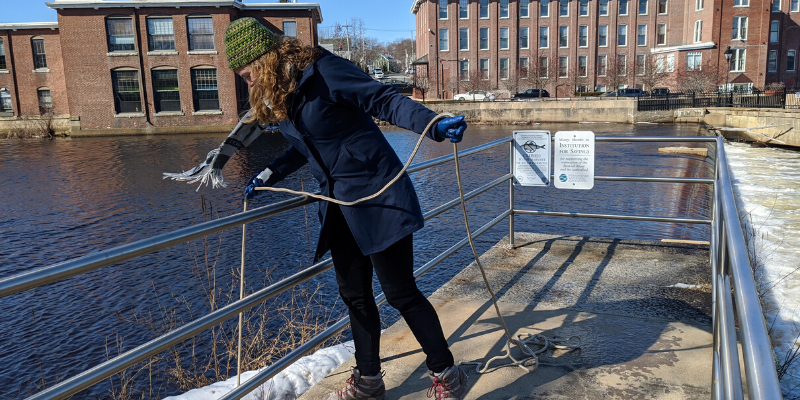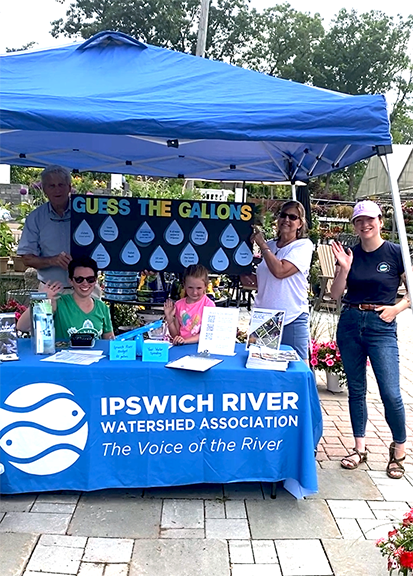Thank YOU for a wonderful PIE-Rivers Annual Meeting! On Thursday, December 7th, the PIE Partners,…
Partnership in Action

The Plum Island Ecosystem Long-Term Ecological Research Network is an integrated research, education and outreach program with the goal of developing a predictive understanding of the long-term response of watershed and estuarine ecosystems to changes in climate, land use and sea level and to apply this knowledge to the wise management and development of policy to protect the natural resources of the coastal zone.
One group is led by Wil Wolheim, of the Water System Analysis Group at the University of New Hampshire. He and his graduate students explore complex hydrological and biogeochemical dynamics across a range of freshwater ecosystems and at scales ranging from individual ecosystems to whole river networks. Through field monitoring, whole ecosystem experiments, novel in situ sensor deployments, and hydrological and ecosystem modeling, they pursue research on the role of biogeochemical processes in shaping water quality. Given the cold temperatures, the in-situ auto-sampler which usually resides at the Ipswich Mills Dam is removed during the colder months, giving Ipswich River Restoration Manager Kaitlyn an opportunity to get outside and help with sampling.
Current research in Massachusetts and New Hampshire primarily focuses on nitrogen and carbon cycling in stream and river networks, fluvial wetlands, beaver ponds and human-made reservoirs. Ongoing studies are exploring (1) the ability of stream reaches dominated by fluvial wetlands to control nitrogen fluxes as well as their contribution to greenhouse gas emissions with increasing urbanization and climate variability, (2) the effect of storm events on nitrogen and carbon cycling in small reservoirs, (3) the role of river networks in carbon cycling by measuring carbon dioxide and methane emissions to account for gaseous loss of carbon from the aquatic system, (4) the biogeochemical impacts of human dam removal and increase in beaver dam abundance in New England, and (5) the controls on sediment fluxes from the watersheds to the Plum Island Estuary. Through this research, the Water System Analysis Group hope to advance knowledge and understanding of environmental change issues altering freshwater systems and the interactions of freshwater systems and society.
Thank you to Sarah Bower for providing this PIE Partner Project update!



This Post Has 0 Comments